CAHSS Brown Bag Series
A College effort brought forward through the SBGS faculty, the CAHSS Brown Bag Series highlights faculty research in the College of Arts, Humanities, and Social Sciences. These monthly events welcome all CAHSS faculty to present their research to fellow faculty, administration, students, invited guests and the public at large. For 20/21, we'll be presenting these events via Zoom.
The CAHSS Office of the Dean strives to make events accessible for all. For accommodation requests, please email cahssdean@csumb.edu.
2021-22 Series:
Friday, September 24, 2021
2pm-3:30 pm
Zoom Meeting ID: Thanks for attending!
Dr. Chrissy Lau
School of Social, Behavioral, and Global Studies
Topic: "Auntie Sewing Squad Guide to Mask Making, Radical Care, cand Racial Justice"
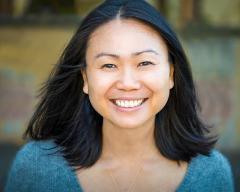
Abstract: In March of 2020, when the U.S. government failed to provide personal protective equipment during COVID-19, I bought a sewing machine, learned how to make masks, and joined the Auntie Sewing Squad. Created by performance artist Kristina Wong, the Auntie Sewing Squad is a mutual aid collective that makes and sends homemade masks to communities that would be disproportionately affected during COVID-19, including Indigenous peoples, asylum seekers, and incarcerated or formerly incarcerated populations. Little did I know that I would co-edit a book entitled "The Auntie Sewing Squad Guide to Mask-Making, Radical Care, and Racial Justice," made possible with a grant from The Albert Lepage Center for History in the Public Interest.
This brown-bag discussion will focus on how COVID-19 transformed my research as a historian and what my research on mutual aid and solidarity means for the future discipline of history. First, the contemporary moment of COVID-19 created a new sense of political urgency that prompted me to ask new research questions and provided unexpected opportunities to work interdisciplinarily. Second, COVID-19 changed how I have traditionally conducted research, from traveling to archives in-person to researching social media platforms as digital archives as well as conducting oral histories via Zoom. Overall, my research transformations during COVID-19 pose broader questions about the future of the discipline of history.
2020-21 Series:
May 7, 1-2:30 pm-Brown Bag & Spotlight on Student Success Event
Our last event of the series will be a CAHSS Brown Bag Spotlight on Student Success event featuring faculty and student presentations and a panel discussion.
- Ruben Mendoza, SBGS, and students, Topic: The Boronda Adobe History Center: Public Archaeology, Historiography, and the Virtual Museum
- Christine Fernandez, WLC, and students, Topic: Pandemic Pedagogical Approaches to Hispanic Testimonials
- Panel Discussion: Lanier Sammons, MPA and Kelly Medina Lopez, HCOM, and Student Editors from Writing Waves, Topic: Reduced or No-Cost Course Materials and Student Success
Dr. Ruben Mendoza
School of Social, Behavioral, and Global Studies
Topic: The Boronda Adobe History Center: Public Archaeology, Historiography, and the Virtual Museum
Abstract: Featured student work to include Jackie Estrada (SBS GIS), who generated an ArcGIS StoryMap for the Monterey County Historical Society / Boronda Adobe History Center and Sean Slayton (SBS History), who generated the Ricoh 3D virtual walkthrough visualizations of a host of buildings at the MCHS featured in the ArcGIS StoryMap. This presentation will summarize recent SBS Archaeology Service Learning efforts to provide students access to the invaluable collections of the Monterey County Historical Society, and its primary document archives that span the period from 1770 through the 1850s. In addition to the review of this work, Dr. Mendoza will introduce the presentation with a brief overview of the benefits accrued to date by our students, who are presently producing primary research for Capstones and publications, as well as instructional materials for Salinas area schools and student tour groups.
Student presenters include: Jackie Estrada and Sean Slaton Writing Waves, Topic: Reduced or No-Cost Course Materials and Student Success
Dr. Christine Fernandez
School of World Languages & Cultures
Topic: Pandemic Pedagogical Approaches to Hispanic Testimonials
Abstract: Abstract: The presentation titled, "Pandemic Pedagogical Approaches to Hispanic Testimonials," explores recent pedagogical approaches to teaching testimonio, including literary materials that provide a global lens on the effects of the current pandemic in Latin America. A student panel will present their findings on community engaged learning since the collaborative project for the course involves writing community members' testimonios to capture social justice issues in our surrounding Latinx/ Hispanic communities and compiling them as a digitally enhanced e-Anthology.
Student presenters include: Vanessa Castro, Alejandra Islas Pacheco, Guadalupe Torres Lustre, Gabriela Zamora-Ramírez, Resignación Salvador-López
Panel Discussion: Dr. Lanier Sammons, MPA; Dr. Kelly Medina Lopez, HCOM, and Student Editors from Writing Waves
Topic: Reduced or No-Cost Course Materials and Student Success
Abstract: In this panel discussion, Kelly Medina-López and Stella Meadows, a student editor, will discuss Writing Waves, an undergraduate writing and research journal that is curated, edited, designed, and produced in-house by CSUMB HCOM majors. Published in a free, open-access format on CSUMB’s Digital Commons, Writing Waves features essays and creative pieces authored by students in CSUMB’s GE Area A2: Written Communication courses. The journal, which has a global readership and garners over 1,000 article downloads monthly, was developed and intended as a zero-cost course reader specifically for GE Area A2. As such, Writing Waves replaces the need for a traditional textbook, removing costly barriers to GE education, while also celebrating and centering CSUMB student voice and promoting a sense of belongingness on campus. Although intended for GE A2 students, Writing Waves has broad applicability across GE and beyond. Join this discussion and find out how you can write the wave with us!
April Brown Bag Rebecca Bales & Zurine De Miguel
We hope you'll join us for the next spring semester CAHSS Brown Bag Series on Friday, April 16, 1-2 pm, via Zoom as we welcome Becky Bales, Topic: The Feminization of Genocide, and Zuri DeMiguel, Topic: Blood Proteins: Gateway to the Benefits of Physical Exercise on the Brain.
Dr. Rebecca Bales
School of Social, Behavioral, and Global Studies
Topic: "The Feminization of Genocide"
Abstract: History has shown the ugly face of genocide in modern times. For Indigenous people genocide began with the invasion of the Americans in the 1400's specifically targeting women and children. This talk will focus on the historical feminization of genocide in North America from colonization to the present day.
Dr. Zurine DeMiguel
Department of Psychology
Topic: "Blood Proteins: Gateway to the Benefits of Physical Exercise on the Brain"
Abstract: Physical activity evokes profound physiological responses and it is widely accepted and promoted as a method of improving human health, including brain health. Exercise interventions in people of various ages with or without neurodegenerative diseases, or brain damage, have been shown to improve cognitive function. Neuroinflammation is a common feature of these conditions and a potential mediator of the cognitive impairment associated with them. Studies in mouse models of aging and neurodegenerative diseases, such as AD and Parkinson disease have linked long-term voluntary wheel running with improved learning and memory, and decreased neuroinflammation. However, how exercise exerts these beneficial effects on the brain is poorly understood. It is possible that the physical exertion of muscle or lung during exercise may result in the secretion of factors from these or other tissues which subsequently signal to the brain. In this Brown Bag presentation, I will show that “runner” plasma, collected from mice with free access to running wheels and infused into sedentary mice, is sufficient to recapitulate the well-documented increase in neurogenesis induced by exercise. Moreover, we discovered that runner plasma infusions improve learning and memory and, importantly, reduce neuroinflammation. These findings demonstrate the existence of prominent anti-inflammatory “exercise factors” which are transferrable and benefit the brain. With this presentation I hope to stimulate your interest!
March CAHSS Brown Bag Series Featuring Dr. Rebecca Pozzi and Dr. Roopa Singh March 19, 1-2 pm
Join us for the return of the CAHSS Brown Bag Faculty Research Series on Friday, March 19, 1-2 pm, via Zoom), as we welcome:
Dr. Rebecca Pozzi, Assistant Professor, School of World Languages & Cultures
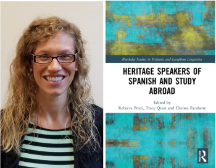
Heritage Speakers of Spanish in Study Abroad: Insights from a Non-Heritage Context
Abstract: Although the number of heritage speakers of Spanish studying abroad is projected to grow in coming years, little is known about heritage speakers who study abroad in Spanish-speaking countries. Most existing studies on this topic focus on heritage speakers of Mexican descent studying in Mexico (e.g., de Félix & Cavazos Peña, 1992; McLaughlin, 2001; Rieglehaulpt & Carrasco, 2000). This presentation explores the diverse experiences of heritage speakers of Mexican descent studying in Mendoza, Argentina. By focusing on a non-heritage context, this analysis moves away from the presumption that all heritage speakers seek to (re)claim a specific ethnic identity through language study (see Leeman, 2015). Findings illustrate the diverse ways heritage speakers in a non-heritage context construct, contest, and negotiate their identities with respect to linguistic awareness, negotiation between varieties, and perceptions of their abilities.
Dr. Roopa Singh, Assistant Professor, School of Humanities & Communication

Adding Terms to the Arsenal: Using “Racial Tourism,” “Racial Mobilities,” and “Justice Storytelling” to Navigate Race in the Academy
Abstract: How do we come to believe in race, and when we do, what stories do we engage? How can we deploy language to help us navigate this confusing and violent terrain called race? In this article, I gather buried terms, “racial tourism,” and “racial mobility,” and add these to the basket of highly circulating terms (such as “cultural appropriation” and “identity fraud”) used to describe and respond to: (1) the specific phenomenon of Blackface in the academy (and redface, yellowface, and brownface), and (2) the broader experience of living with and within inseparable systems of race, racial categorizations, and racism in the ivory tower.
Specifically, I find “racial tourism” and “racial mobility” both reveal a state of movement at the essence of the racial takings and accumulation of racial value exhibited by white scholars committed to racial appropriation and fraudulently coding as Black, brown, and Indigenous. These terms allow for a noticing of the movement along the racial spectra - a noticing that precedes and can bolster the ethical, moral, and legal judgments of the movement as being, for example, an immoral taking. This phenomenon is exemplified by, but not limited to, prominent scholars such as Jessica Krug, Andrea Smith, Elizabeth Warren, BethAnn McLaughlin, and less prominent scholars such as Rachel Dolezal. Broadly, “racial mobility” and “racial tourism” provide an essential framework through which to notice and address the jarring and chaotic experience of being a scholar living with and within racial categories, racism, and race.
February CAHSS Brown Bag Series Featuring Dr. Dustin Wright & Dr. Frederik Vermote
Join us for the return of the CAHSS Brown Bag Faculty Research Series on Friday, February 26, 1-2 pm, via Zoom, as we welcome:
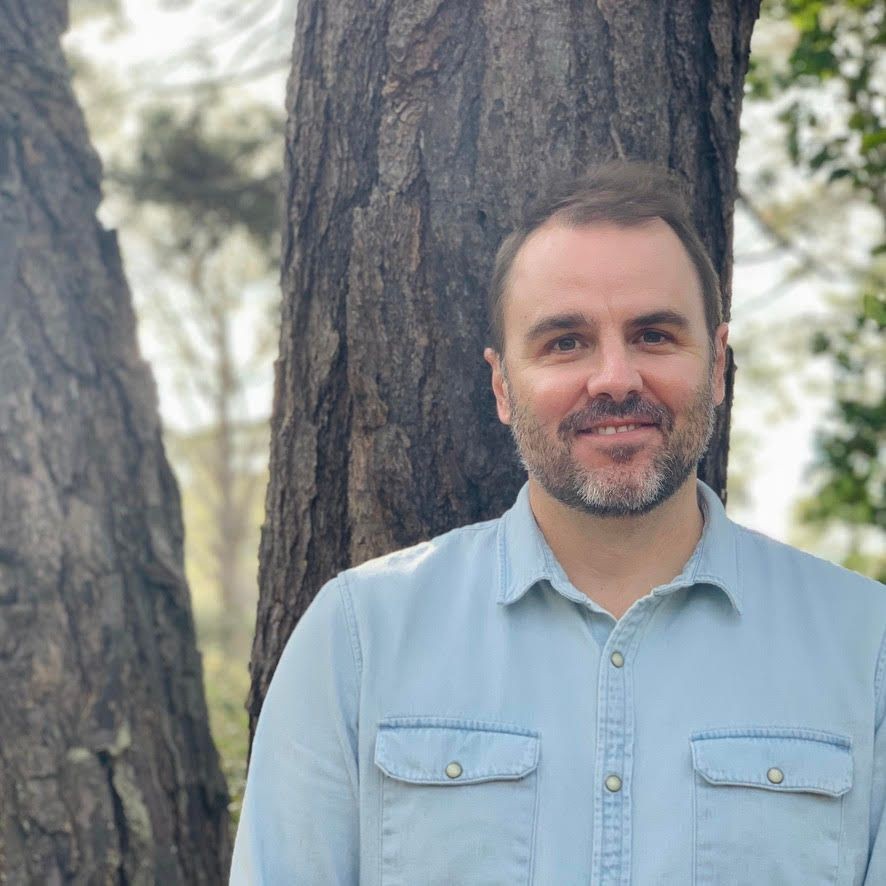
Dr. Dustin Wright, Assistant Professor, School of World Languages & Cultures
Topic: From the Fields to the Courts: Anti-Military Base Protest in Modern Japan
Abstract: Anti-military base protests rocked Japan throughout the 1950s and 1960s. This paper interrogates two important legal cases regarding local opposition to military bases and militarism: the Sunagawa Incident of 1959 and the Eniwa Incident of 1967. The Sunagawa Incident was a legal case brought against anti-U.S. military base protesters who were accused of trespassing onto a base, while the Eniwa Incident referred to the prosecution of a family accused of vandalizing the property of the Japanese Self-Defense Forces. Both cases became cause célèbre for leftists and peace groups throughout Japan, which forced the presiding judges to look beyond the initial scope of the actual crimes in question and instead address broader legal critiques on the presence of military bases in Japan, a country where militarism is usually understood to be illegal under Article Nine of the constitution. By examining the laws on the physical presence of military bases throughout Japan’s topography, along with the judges’ ruling opinions, I draw attention to the legal roots of citizen-led anti-base activism in postwar Japan.
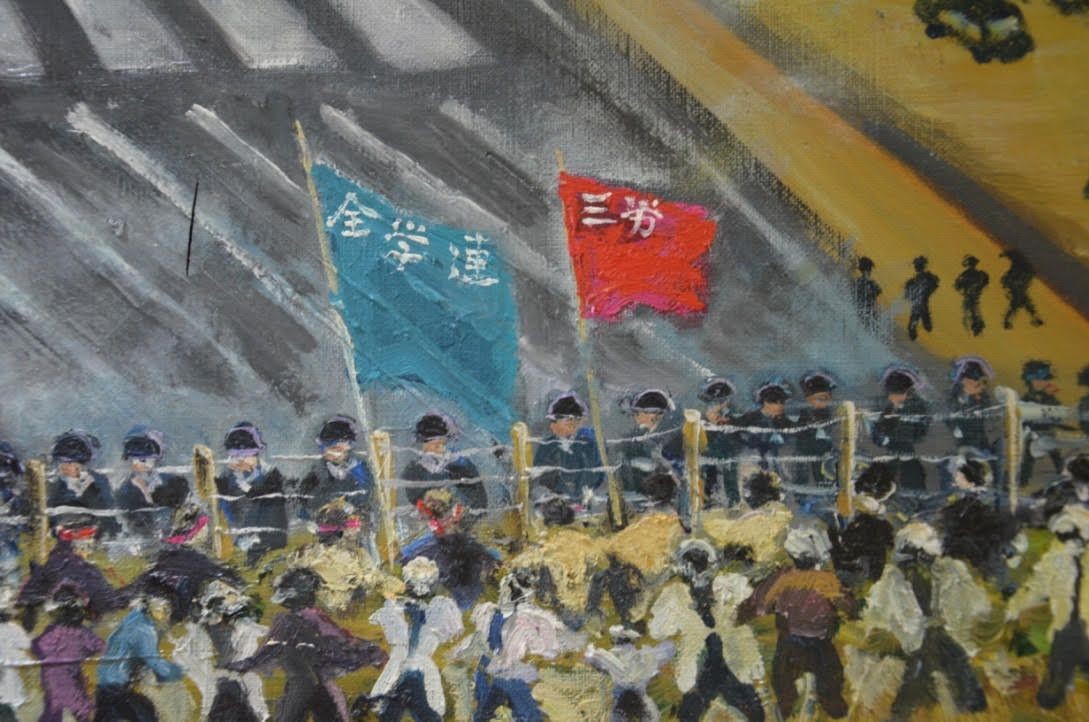
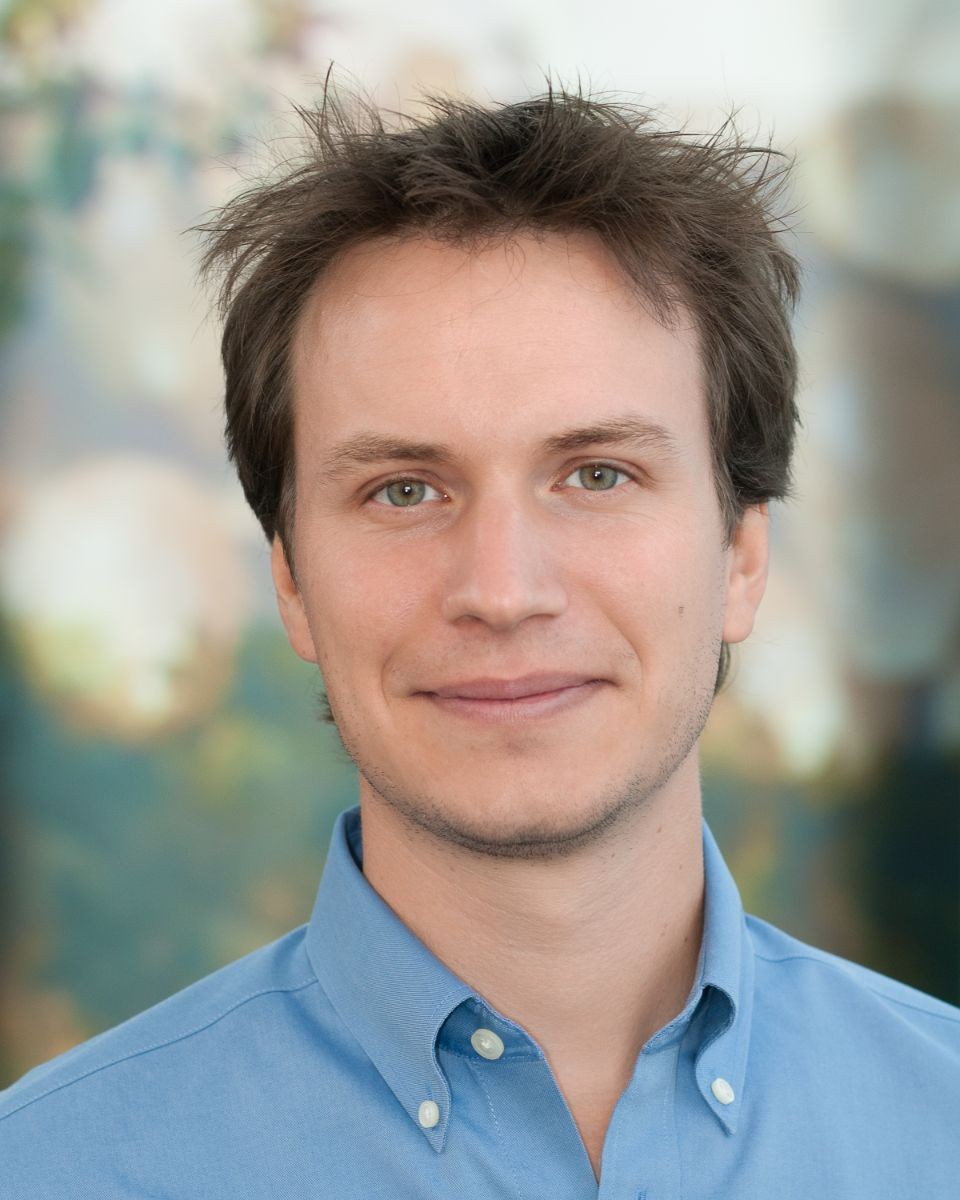
Dr. Frederik Vermote, Associate Professor, School of Social, Behavioral, and Global Studies
Topic: Trust and Travel: Jesuit and Pirate networks between Europe and China During the Seventeenth Century
Abstract: Throughout most of the seventeenth century, Europeans such as the Portuguese, the Dutch, the Spanish, and the English were competing with each other for trade and political power in the Asian maritime space. They all attempted to link the southeast Asian zone with the East Asian zone and they wanted monopoly power over this connection. None of them was successful. At precisely the same time that the Jesuit missionaries had the lowest rates of successful transport between Europe and China, during the 1670s and 1680s, European networks were not the strongest networks that linked southeast Asia and southern China: the maritime network of the Zheng pirate family held that honor. For three generations (from the 1620s until 1682) the Zheng family controlled the south China seas with its tens of thousands of ships. These “sea lords” chased the Dutch East India company out of Taiwan in 1662. The Zheng kept all European trading companies and states in check. In my work, I examine the ‘trust networks’ Jesuits established with whoever had ships and was willing to provide transport. This was when missionaries and pirates found each other. My work examines the evolution and character of their interactions, while also analyzing the fall-out and alternatives.
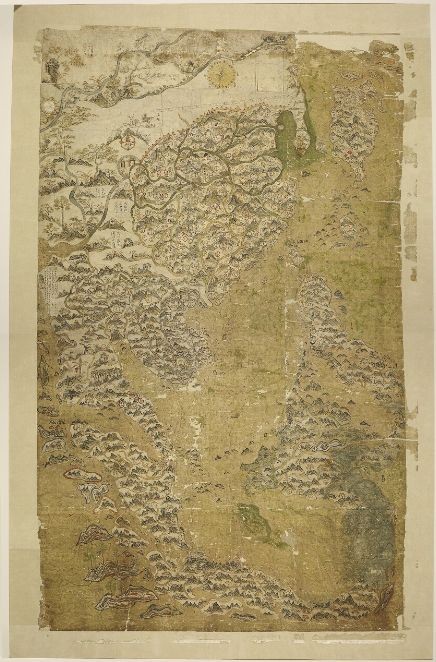
2019-20 Series:
March CAHSS Brown Bag Featuring Dr. Yong Lao, Dr. Jennifer Lovell, and Dr. Christine Valdez
Thank you for joining us March 6, Noon-2 pm, CAHSS 504-1301, for the March CAHSS Brown Bag as we explore Vehicle Miles Traveled: GIS Mapping & Analysis with Dr Yong Lao, and Using Virtual Reality to Increase Empathy in Psychology Service-Learning Students with Dr Jennifer Lovell & Dr Christine Valdez
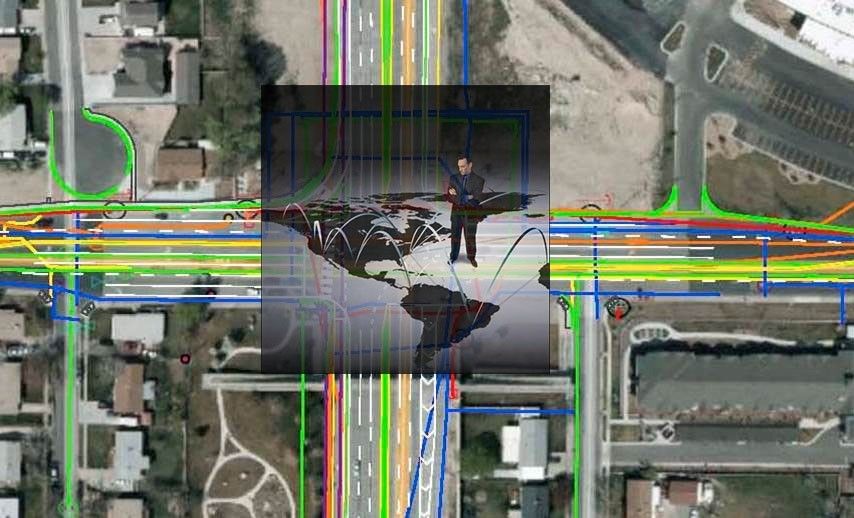
Vehicle Miles Traveled (VMT): GIS Mapping and Analysis
Dr. Yong Lao, School of Social, Behavioral, and Global Studies
Vehicle miles traveled (VMT) is a key indicator to measure the total travel on roadways. VMT plays a vital role for transportation professionals, researchers, and policymakers. Combined with other data, it is often used in estimating traffic congestion, air pollution, and potential gas-tax revenues. Moreover, large amounts of federal and state transportation dollars are distributed based solely on the amount of VMT driven.
This study aims to address two important aspects of VMT that are largely neglected in current research. First, how does per capita VMT and related socioeconomic factors vary geographically? Second, given the quantity, complexity and dimensionality of VMT related factors, how can we structure and capture their strength, associations and variability in time and in space? Methodologically, a Geographic Information System (GIS) is used to map and visualize VMT patterns and trends. Additionally, a confirmatory factor analytic (CFA) model is developed to measure the connections and interactions among VMT related socioeconomic and demographic variables.
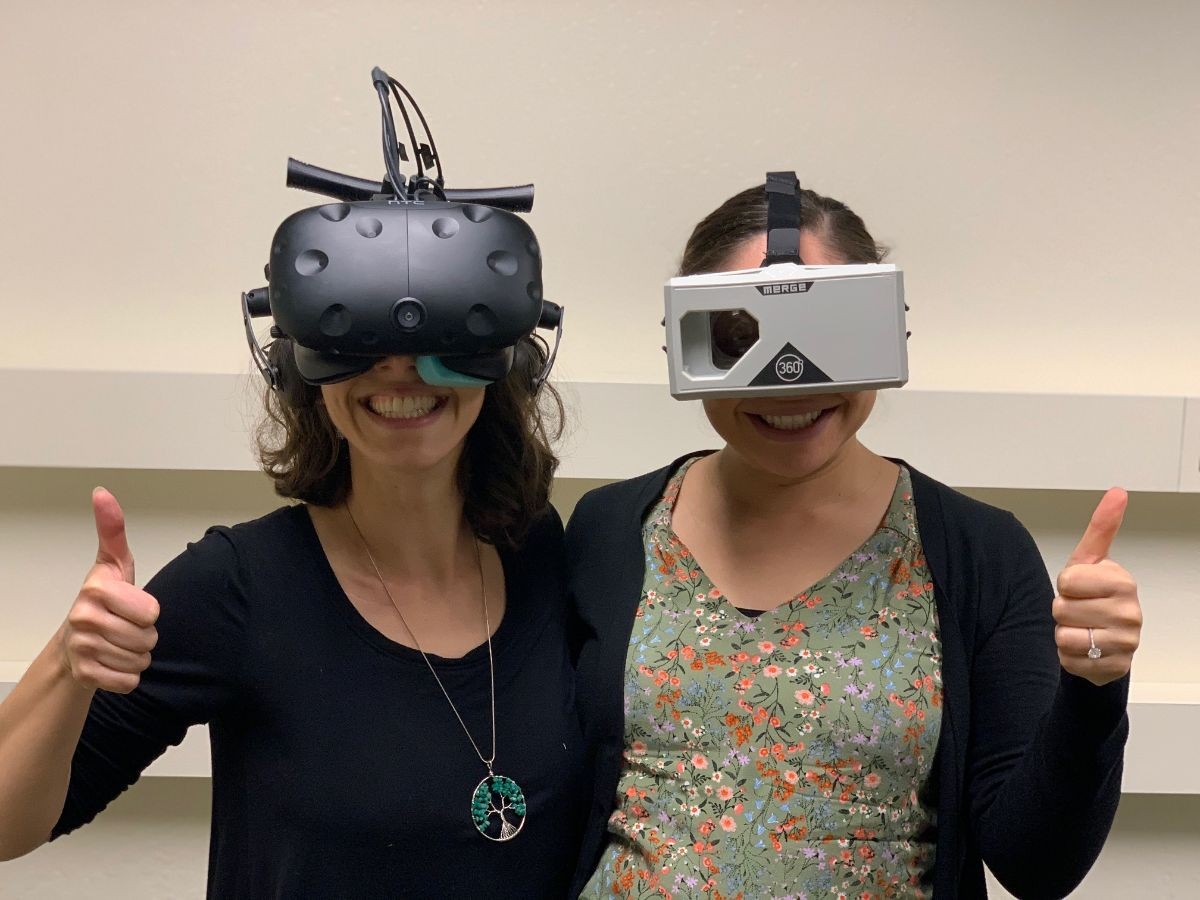
Using Virtual Reality to Increase Empathy in Psychology Service-Learning Students
Dr. Jennifer Lovell & Dr. Christine Valdez, Department of Psychology
Social responsibility within a diverse world is a cornerstone of the CSUMB Vision Statement and a psychology learning outcome (APA, 2013). In this Brown Bag, Drs. Valdez and Lovell will discuss how they used an Innovation in Teaching and Learning Grant to integrate and research virtual reality as a tool for enhancing student learning within psychology service learning courses.
Virtual reality allows individuals to see what it is like to live as another, and it is an emerging strategy for improving empathy on the interpersonal and global levels (Bailenson, 2018). We will share pedagogy, assignments, assessments and pre-/post-test results, and we encourage discussion. We hope this brown bag will help inspire and generate ideas for how others can utilize this technology within their teaching.
CAHSS Brown Bag Research Series Archive
- September, 2019
- Dr. Angie Ngoc Tran, School of Social, Behavioral, and Global Studies: Ethnic Dissent and Empowerment: How Migrants Use Third Space to Overcome Adversity in Vietnam and Malaysia.
- Abstract: This book focuses on how migrant workers from five ethnic groups in Vietnam: the Kinh (the majority), the Hoa (ethnic Chinese), the Hrê (mountainous people) and the Khmer and the Chăm Sunni Muslims (the Mekong Delta region) engage in physical third space and receive acceptance from the communities in Malaysia and Vietnam. Non-state authorities use metaphorical third space—ironic and subversive mimicries—to challenge the Vietnamese state’s authority. The findings are based on eight years (2008-2015) of research in Vietnam and Malaysia, interviewing 158 migrants and family members, indigenous village leaders, state and civil society actors.
- Dr. Tolga Tezcan, School of Social, Behavioral, and Global Studies: First-Generation Circular Migrants Involved in the Upbringing of their Grandchildren: The Case of Turkish Immigrants in Germany
- Abstract: In this study, Dr. Tezcan explores how first-generation Turkish circular migrant grandparents (N=40) attempt to raise grandchildren who reside in Germany by implementing ‘cultural and instrumental transfers.” His analysis finds that child-care assistance is characterized by intergenerational conflict – rather than solidarity or altruistic support – between the first and second generations. Moreover, through transnational arranged marriages, as a cultural transfer, and intervivos gifts, as an instrumental transfer, grandparents encourage their grandchildren to return to Turkey permanently.
- Dr. Angie Ngoc Tran, School of Social, Behavioral, and Global Studies: Ethnic Dissent and Empowerment: How Migrants Use Third Space to Overcome Adversity in Vietnam and Malaysia.
- October, 2019
- Dr. Juan José Gutierrez, School of Social, Behavioral, and Global Studies: Xente d'Arroxu: Daring to Leave
- Dr. Juan José Gutiérrez Álvarez-This book focuses on the experiences of Spanish emigrants from communities in Asturias (Northern Spain) as they embarked on a long migration experience that lasted from a few years to three decades. The author proposes six analytical categories to approach the experience of return migration and applies them to specific case studies including need and opportunity, subjective experience as generative element, strategies of attainment, adaptation and transformation, cultural, social and economic capital. The book proposes a series of oral studies as a tool to explore how each of these categories play a role in the creation of a return emigrant vision.
- Dr. Juan José Gutierrez, School of Social, Behavioral, and Global Studies: Xente d'Arroxu: Daring to Leave
- November, 2019
- Dr. David Reichard, School of Humanities & Communication: Doing Unheard of Things: Early Queer Student Organizing on California College Campuses, 1967-1978
- This presentation showcases a book project exploring the first generation of LGBTQ students to organize openly on California college campuses in the United States during the 1960s and 1970s. Drawing on extensive archival research and dozens of oral histories, the book provides a window onto the underappreciated role that students played in the LGBTQ movement, arguing that the infrastructure created by queer students, their educational and cultural work, connections made across campuses, and bridges within and across communities, facilitated the integration of the movement and its concerns onto college campuses, and magnified the movement’s impact within local communities. This first generation of out and about student organizers laid the groundwork for the continued work of LGBTQ+ students in the 1980s and beyond, impact that is still being felt today.
- Dr. Stephanie Spoto, School of Humanities & Communication: Wittgenstein, Aspect Blindness, and White Supremacy
- Wittgenstein's theory of aspect perception has been taken up by scholars interested in the ways that people take in and interpret visual stimuli. Within this field of inquiry, Wittgenstein proposes to notion of "aspect blindness," the failure of a person to see a particular aspect or expression. An important turn in the use of Wittgenstein's aspect perception has not always been in the ways that deviating perspectives fail to "see" in the same way that the normative category "sees," but in the ways that those on the constructed margins turn a critical eye on the failure of normative "seeing." Using this framework, this article turns to critique the racism and "aspect blindness" embedded in whiteness. It examines Enlightenment scientific racism and the racialized hierarchies used as the justification for excluding some people from the category of humanity. The work finishes by linking with insights developed within the Black Lives Matter movement.
- Dr. David Reichard, School of Humanities & Communication: Doing Unheard of Things: Early Queer Student Organizing on California College Campuses, 1967-1978
- February, 2020
- Dr. Sara Salazar Hughes, School of Social, Behavioral, and Global Studies: Environmental Infrastructures and (De-)Development in the West Bank
- Abstract: In recent decades, Israel has positioned itself as a leader in “green” innovations and energy infrastructure, including solar. This is mirrored, though, not just by the underdevelopment of Palestinian energy infrastructures (among others), but by their active de-development at the hands of the Israeli military administrators of the occupied West Bank. Israel’s conflict infrastructures (checkpoints, the separation barrier, settlement blocs, segregated road networks) have long been understood to extend Israeli de facto sovereignty throughout the occupied territories, but green infrastructures and developments seem less overtly geopolitical and are being marketed globally. After all, green technologies are ostensibly aimed at sustainable resource management and climate change mitigation—global necessities and public goods. I argue that the infrastructural asymmetries between Israelis and Palestinians in the West Bank should be seen as part and parcel of Israel’s broader conflict infrastructure (aimed at Israeli sovereignty and Palestinian dispossession), as tools of Israeli development of the West Bank in the interest of Israelis (and in violation of international law), and as active efforts to de-develop Palestinian infrastructures in that same landscape (in other words, Palestinian de-development is not a side effect, but central to the development of these infrastructures). Therefore, these are not just “green” infrastructural developments, but are geopolitical weapons of control, appropriation, and dispossession which cannot be abstracted from the geopolitical context in which they are created.
- Dr. Sara Salazar Hughes, School of Social, Behavioral, and Global Studies: Environmental Infrastructures and (De-)Development in the West Bank
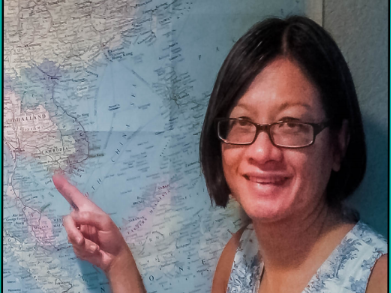
Dr. Angie Ngoc Tran
September, 2019
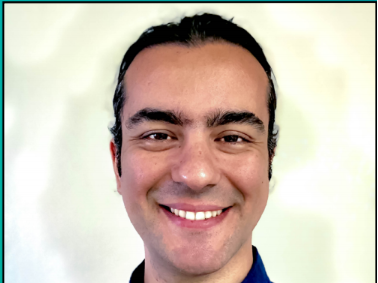
Dr. Tolga Tezcan
September, 2019
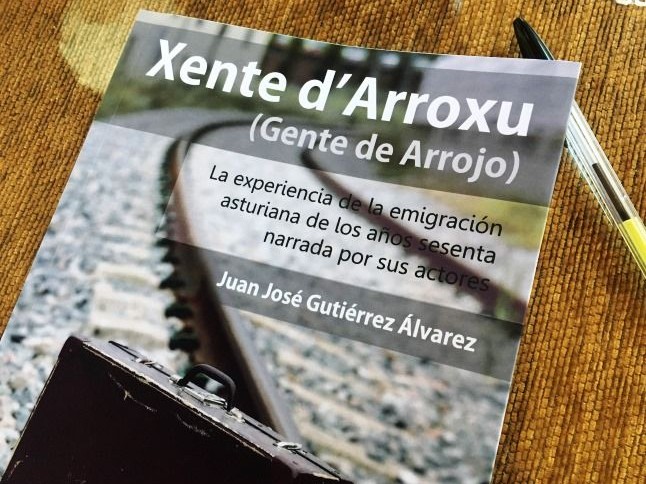
Dr. Juan José Gutierrez
October, 2019
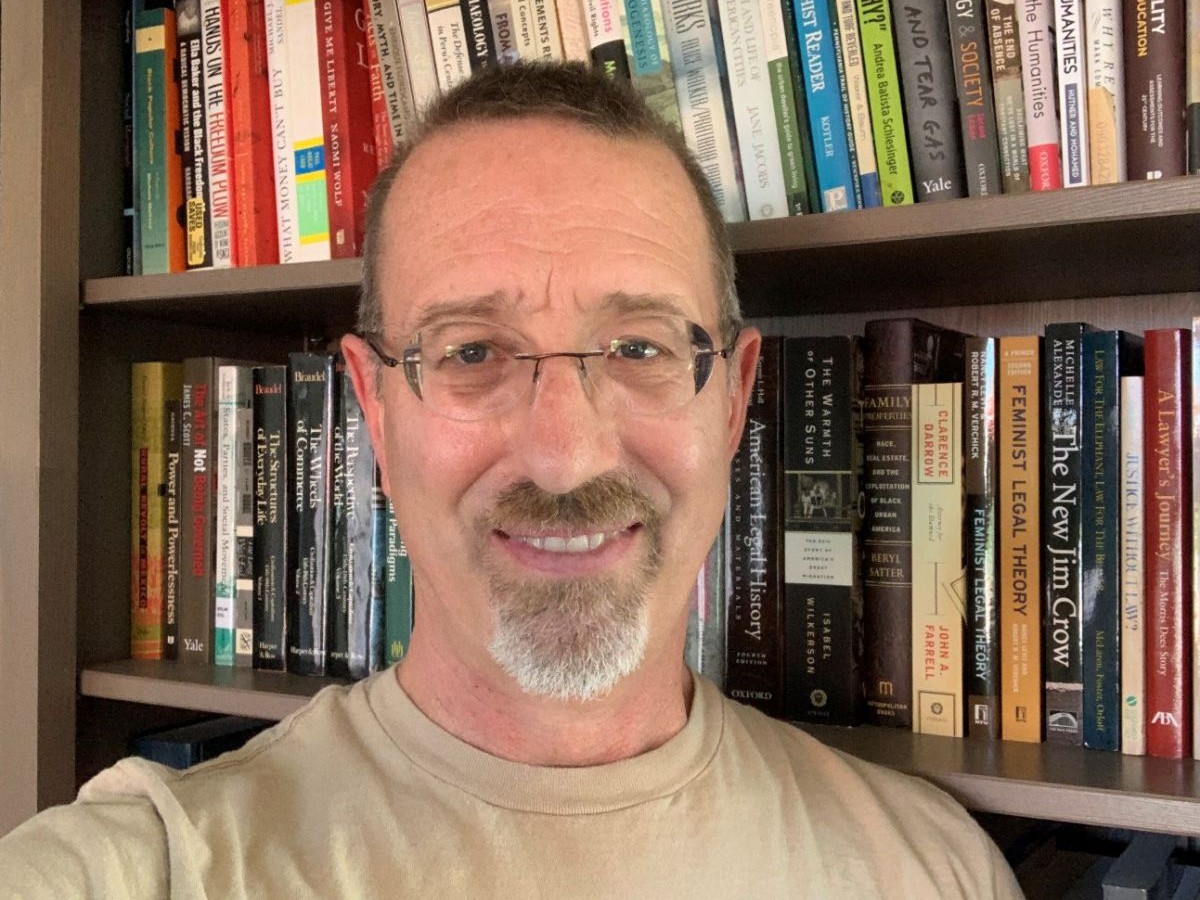
Dr. David Reichard
November, 2019
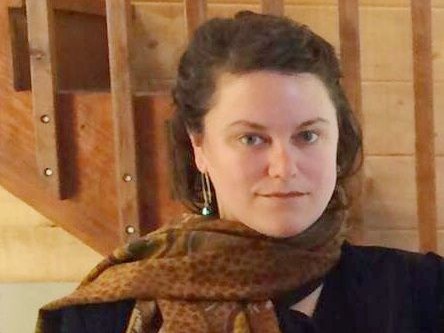
Dr. Stephanie Spoto
November, 2019
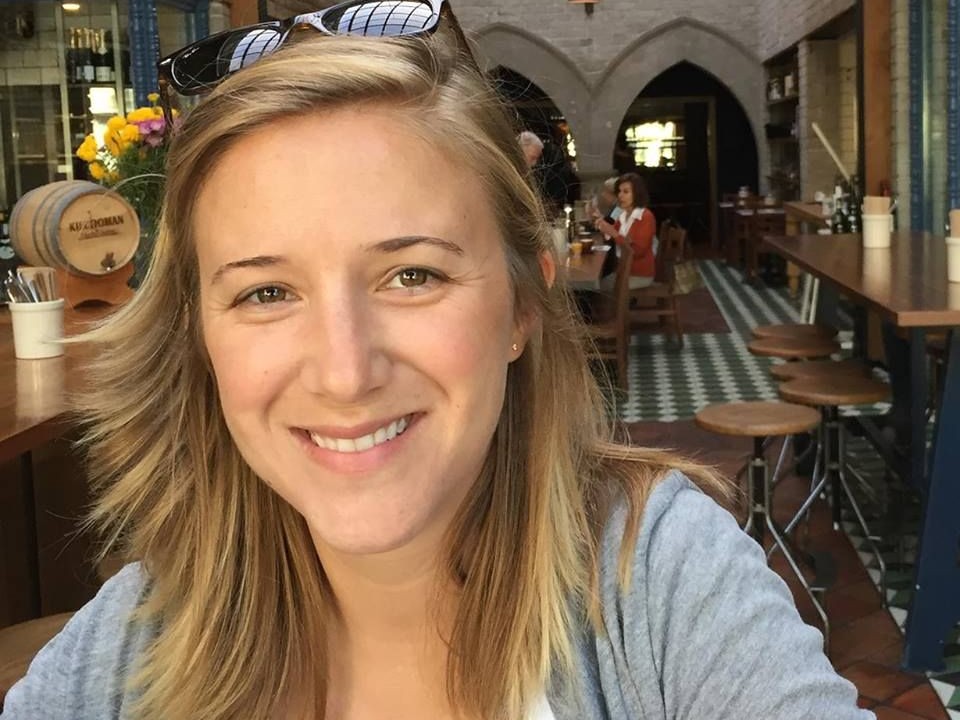
Sr. Sara Salazar Hughes
February, 2020
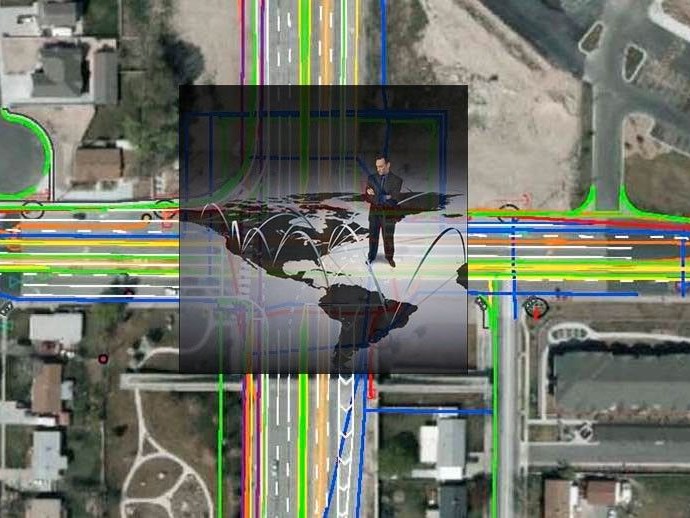
Dr. Yong Lao
March, 2020
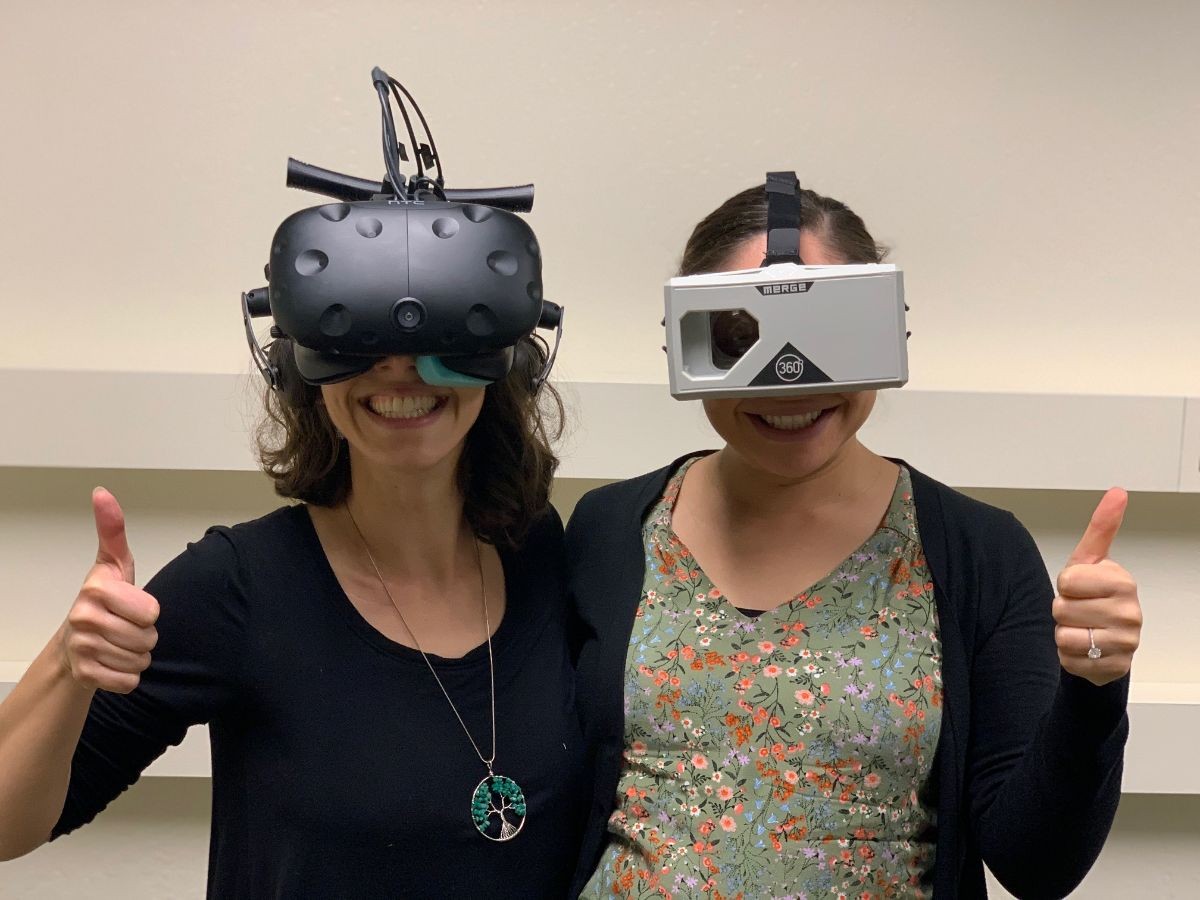
Dr. Jennifer Lovell (l) & Dr. Christine Valdez (r)
March, 2020